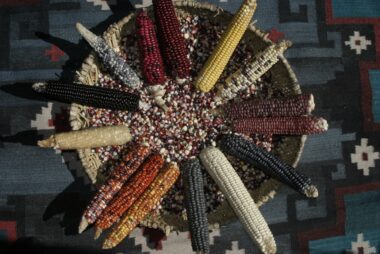R. Kyle Bocinsky – “Can Pueblo Corn Save African Farms? Employing 1,400 Years of Agricultural Knowledge in Service of the Future”

Traditional crops and farming practices are not only nutritionally, economically, and spiritually important to human communities—they are reservoirs of resilience encapsulating generations of traditional agronomic and environmental knowledge. Can that knowledge be used to improve global food security? Using data from the MAÍS project and a state-of-the-art maize growth model, my colleagues and I are simulating the potential productivity of several non-irrigated Pueblo maize varieties across the southwestern United States during the last two millennia, and then forecasting productivity over the next century using IPCC climate-change projections. We are doing the same using historic weather data and future climate projections in southwestern Ethiopia. Drought- and heat-resistant Pueblo maize varieties are likely to provide a more stable and sustainable subsistence base for Ethiopian farmers than commercial hybrids currently under cultivation. Perhaps more importantly, Pueblo farming practices—developed in the drought-prone and highly variable Southwest—may help inform adaptive shifts by subsistence farmers worldwide. I will give an update on this ongoing and exciting research, and will also highlight how this and related work is revealing macro-scalar patterns in Pueblo prehistory.
Additional Information:
The Greatest Vanishing Act in Prehistoric America
Movie of Tim Kohler talking about Village Ecodynamics Project (VEP)
 All Posts
All Posts